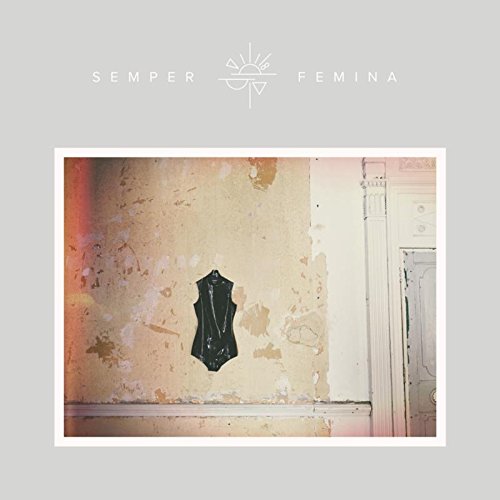With International Women’s Day recently passed on March 8th, it’s seasonal that a record that explores ideas about female gender and identity from an admired and triumphant spokeswoman has just been released. Although it’s nothing new to have songs about feministic liberation – songs highlighting the subject include Aretha Frankin‘s ‘Respect’, Beyonce‘s ‘Run The World (Girls)’ and Madonna‘s ‘What It Feels Like For A Girl’ – Laura Marling‘s Semper Femina has an interesting set of vantage points about women and intriguing lyrics to match.
The circumstances of Marling’s life at the time of conceiving her sixth album are paramount to understanding her mindset. After first discovering her second home of Los Angeles during the making of her predecessor Short Movie – an album that conceptualised her new found solitude – it was in this city that the philosophical Marling began questioning how feminine she felt. Her shaved hair and appearance, combined with her increasing circle of gender-fluid friends thrusted her outside of a label for a brief period of time, helping to fuel an album that views women with a multi-dimensional and challenging angle. The title of the album Semper Femina itself relates to the kaleidoscopic nature of women as “fickle and changeable” and comes from a Latin poem called The Aeneid – the poetic interest is unsurprising if you are follower of Marling’s catalogue.
The ambitiously written and metaphorical ‘Nouel’ is a good example. On here Marling imagines herself as French painter Gustave Courbet composing “Origine Du Monde“. A controversial 19th century piece realistically depicting female genitalia. The lyrics not only encapsulate the perspective of a woman through the eyes of the lustful male gaze but also the role of women as merely an artist’s muse instead of being the artist themselves – something that can be applied to the music world as well nowadays, as pointed by Marling in her podcast Reversal of The Muse. Yet in the song Marling also switches to being an advisory character : “Oh Nouel, you sit so well. A thousand artists’ muse. You’ll be anything you choose.”
The sexually suggestive ‘Soothing’ encourages empowerment but in a completely different way, discussing the fine line between lust and self-control. Although ‘Wild Fire’ points out the hindrance that a woman’s identity is often in the hands of another’s opinon: “Of course the only part I want to read is about her time spent with me.” It’s a slight shame though, that it ends with an anticlimactic, slightly twee message of “Nothing matters more than love” on finale ‘Nothing Not Really’ but perhaps the artist is displaying an aspect of her continued soul-searching that relates to her allegiance.
In a complimentary way, Semper Femina feels like a typical Laura Marling record musically, in that on the surface is a straight forward folk record with intimate acoustic performances, airy production space and Marling’s voice switching from Americana twang to Charlotte Gainsbourg‘s British expression and beneath the simplicity is subtle tricks that make it off-kilter. Soothing and Don’t Pass Me By’ delightfully display a discordance. The former uses glum wayward bass notes to give a tense, sinister and unsettling rhythm to the track whilst the latter contains a drum machine backing with a noticeably disjointed loop. This method is darkly effective but unfortunately isn’t used enough through a short lengthed album.
Due to the musician bursting on the scene at seventeen, part of the charm of following Laura Marling is watching her grow in life through parental eyes. Unlike Adele, another artist who could also fit that coming-of-age category, Marling exhibits her will to learn and fulfil ambition. Recently undertaking self-production, now she’s become a music video director for the first time, allowing her to fully engage with her lyrics but also gain even more control of her artisty – something to which International Women’s Day aspires.
Semper Femina is out now on More Alarming Records.




